
It may be a few days before Thanksgiving, but the atmosphere inside Vivint Arena on Monday night was like a game in mid-May.
Rather than it being a month into the season, the battle between Utah and Memphis felt like a playoff game, with the raucous crowd making it deafening late in the fourth quarter.
But unlike the last time these two teams met in the playoffs, the Jazz heartbreakingly fell 119-118 to the Grizzlies.
“We let up as a team, and that’s when it went bad,” Donovan Mitchell said postgame. “We just can’t let up, that’s the biggest thing. We got to keep our foot on the gas.”
Bojan: 24p | 7 3pm | 3a | 3r
Rudy: 23p | 13r | 5b | 9-10 fg
Mike: 19p | 8a | 4r | 3 3pm
Donovan: 18p | 8a | 6r | 3 3pm
Royce: 9p | 6r | 3 3pm | 1a | 1s
Jordan: 9p | 4a | 3r | 1b
Joe: 2p | 2a | 2s
Ocho: 3r | 2b#podiumpostgame | @podiumhq pic.twitter.com/27f5M1W1Fa— Utah Jazz (@utahjazz) November 23, 2021
Here are five things you need to know following the loss:
1.) What Happened In The End?
The drama unfolded with 14.8 seconds left and Utah clinging to a two-point lead. Memphis’ Ja Morant was at the charity stripe, shooting his second free throw. He missed the shot, and a battle for the rebound ensued, with Royce O’Neale coming down with the rebound for the Jazz.
Instead of play continuing, a whistle by an official stopped the play, resulting in an officials replay to check for offensive goaltending on Memphis. After it was deemed an inadvertent whistle — no goaltending — a jump ball ensued at half court. The Grizzlies won the jump ball, which led to a Jaren Jackson Jr. three-pointer with 5.9 seconds left — the game’s final points.
Even with the drama, the question remains if the officials made the right call by blowing the play dead — thus taking away O’Neale’s rebound, which would’ve given the Jazz the ball with 14.8 seconds left and leading by two.
“It was just a bad call,” Rudy Gobert said of the referee’s inadvertent whistle. “I don’t want to put the game on that, but it didn’t help.”
Gobert is correct in both instances — both for the call and not blaming the entire outcome on that play.
Still, multiple Jazz players and head coach Quin Snyder were visibly distraught by the game’s outcome, believing they let a victory slip through their hands based on their play.
“At that point, it comes down to 14 seconds, and they made the plays and we didn’t,” point guard Mike Conley said. “That’s what it comes down to in a game like this.”
2.) Bojan Bogdanovic Proves To Be A Closer
It’s rare but it does happen.
Sometimes Donovan Mitchell plays like a mere mortal and not like the superstar he is. But in those games, it’s always been a question about who will step up as the primary offensive threat when Mitchell struggles to buy a bucket.
That’s the situation Utah found itself in on Monday night against a feisty Grizzlies squad.
While Conley and Gobert did all they could to put points on the scoreboard, Bojan Bogdanovic made the most significant difference.
The forward finished with a team-high 24 points, 12 (4-for-5 from beyond the arc) of which came in the fourth quarter. He also added three rebounds and three assists.
Bogdanovic scored all of his fourth quarter points with seven minutes left in the game, having two separate stints where he hit back-to-back three pointers on consecutive possessions. His ability to not only catch-and-shoot but create his own shot gives the Jazz a bonafide scorer and closer for those rare games when Mitchell is off.
“They were trying to hedge the pick-and-roll, so I was able to get a few open looks in one minute,” Bogdanovic said. “Then the floor kind of opens up for me after I hit that corner three.”
| Bogey with a season-high 7 three-pointers #TakeNote | @zionsbank pic.twitter.com/vtAQSOlvQE
— Utah Jazz (@utahjazz) November 23, 2021
3.) Rudy Gobert Moves Up Utah’s All-Time Blocks List
Make room Mark Eaton and Andrei Kirilenko. A new member is joining Utah’s top three in all-time blocks.
With a posterizing block of Morant with just over a minute to play, Gobert passed Greg Ostertag and now checks in at No. 3 in all-time franchise blocks for the Jazz. He currently sits at 1,254 for his career, just 126 behind Kirilenko for second all-time.
It might be tough to catch Eaton and his 3,064 blocks — fourth all-time and one of five players in NBA history with 3,000 blocks. But even if Gobert doesn’t catch Eaton, he will still go down as one of the greatest defensive players to ever play.
Gobert is currently a three-time defensive player of the year, tied with Dwight Howard for second all-time behind Dikembe Mutombo and Ben Wallace (four each). Gobert has won the award three of the past four seasons as his ability to alter a game in the paint is unmatched in today’s game.
For instance, Memphis’ Jackson is averaging just 6.0 three-pointers per game, but when guarded by Gobert like he was Monday night, he shot 3-for-11.
It appears that Gobert’s offensive game is now catching up to his defensive prowess, making him one of the most elite and well-rounded centers in the league.
too #TakeNote | @rudygobert27 pic.twitter.com/W3nB5laMyF
— Utah Jazz (@utahjazz) November 23, 2021
4.) Transition Defense And Offensive Rebounds Continue To Be Achilles Heel
While many fans want to point to the inadvertent whistle late in the fourth quarter as the reason the Jazz lost, Snyder wasn’t going near that. According to him, Utah lost the game when it came to giving up offensive rebounds and points in transition.
The Jazz gave up 16 offensive rebounds — including three in the final 1:09 that proved the most significant difference maker. Of those 16 boards, Memphis scored 22 points — and when combined with 18 fast break points, that’s 40 extra points Utah surrendered.
“What hurt us was giving up offensive rebounds, particularly late,” Snyder said postgame. “Giving up two ends of the possession, transition defense and defensive rebounding, they scored 50+ points on those two areas. If we have the right focus in those two areas, we aren’t in the position we are in at the end of the game.”
Snyder wasn’t the only one upset with the team’s performance in those two areas. Gobert also had some choice words, saying that should never happen to a team with Utah’s maturity.
“We are up six with a minute left, and we have three possessions where we don’t execute on offense, and three possessions in a row we give up offensive rebounds,” he said. “Just too many mistakes for a team that has the kind of experience. … That’s not acceptable.”
These are the two facets of the game where Utah has struggled most throughout the season — parts of the game Snyder has spoken about nearly every postgame press conference. If the Jazz can dial it in, this team could be very dangerous come postseason time.
5.) Mike Conley Better Than Last Year?
A lot of talk was made about Conley last season when, in his 14th NBA season, he finally became an all-star for the first time.
It didn’t matter that he had better stay statistical seasons before the 2020-21 season. It didn’t matter that he was no longer the focal point on offense. All that mattered is that Conley, who shot the ball at an extremely high efficiency, was a key figure for one of the NBA’s top offenses and defenses.
Based on efficiency alone, Conley is having the best statistical year of his career.
One-fifth into the new season and he’s shooting career-highs from the floor (49.3%) and three-point territory (45%), averaging 13.8 points, 5.6 assists, and 1.9 rebounds per game. He’s also perfected the pick-and-roll with Gobert, absolutely devastating teams with his playmaking abilities as defenses have no answer to stop him.
Conley has been particularly effective the past few games.
Against Philadelphia three games ago, Conley completely dominated the contest despite taking just four shots. He’s then averaged 18 points, five assists, and 2.5 rebounds over the past two games.
Utah’s coaching staff has made health a priority this year, especially for Conley. That means that the point guard isn’t playing in back-to-back games, something he is begrudgingly accepting.
But they’re willing to give up a few games in the regular season if it means Conley will be healthier for a postseason run — after all, there are lofty goals in Salt Lake City these days.
No rushing an OG #TakeNote | @Mconley11 pic.twitter.com/e3zb1txxDD
— Utah Jazz (@utahjazz) November 23, 2021


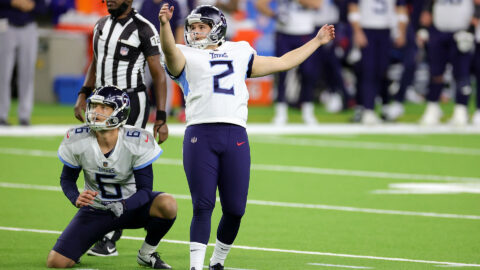

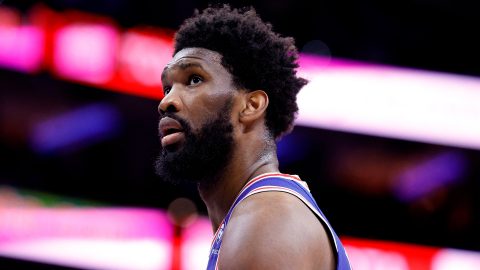
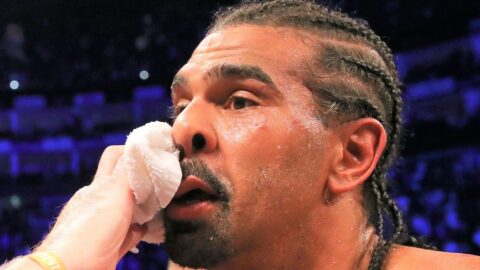

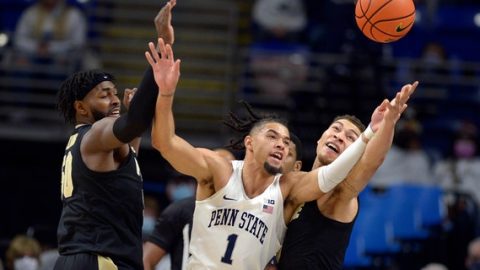
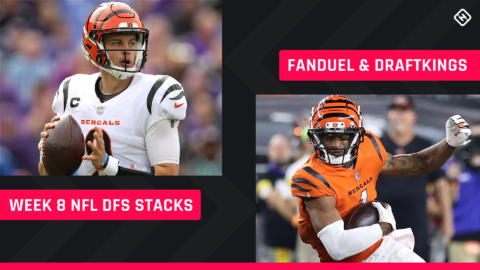
Recent Comments